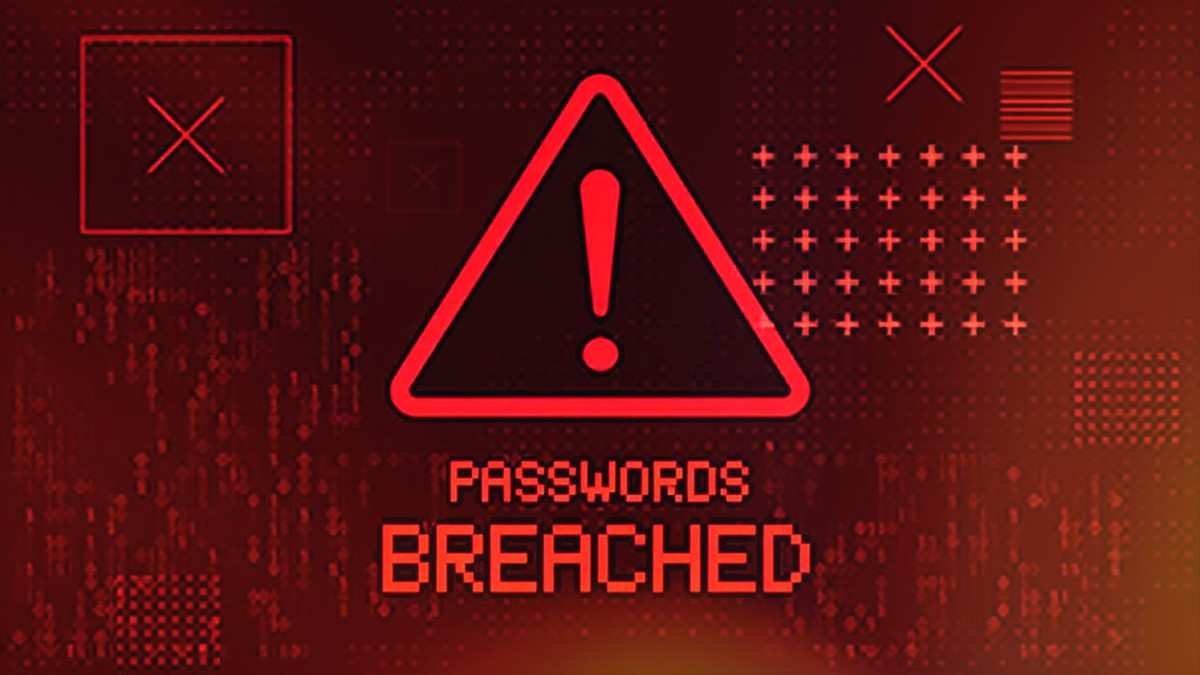
In a dramatic turn of events, a record-breaking 16 billion passwords have surfaced in the largest data breach ever recorded, shaking the core of digital trust. Unveiled by cybersecurity experts at Cybernews, this chilling discovery includes stolen credentials from giants like Google, Apple, Facebook, and even government sites. The data—gathered through stealthy infostealer malware—presents a silent threat lurking behind everyday logins. With “google passwords leaked” now a frightening reality, users worldwide are left to wonder: Have I been pawned, or am I next?
Table of Contents
Toggle🔍 STORY HIGHLIGHTS
-
Over 16 billion passwords leaked in total.
-
Google passwords, social media accounts, developer platforms, and government logins included.
-
Leaked data sourced from infostealer malware infections.
-
Investigation led by Cybernews’ Vilius Petkauskas since early 2025.
-
30 massive data dumps found—some with over 3.5 billion records.
-
Many credentials exposed in simple text URL-password format.
-
Alarming rise in vulnerability to phishing and account takeovers.
-
Time to ask: “Have I been pawned?“
-
Cybersecurity experts urge strong password management and multi-factor authentication.
-
Public advised to use dark web monitoring tools.
In what experts are now calling the largest known data breach in internet history, cybersecurity researchers from Cybernews, led by Vilius Petkauskas, have uncovered a staggering 16 billion leaked login credentials, spanning nearly every major online platform. This colossal exposure of sensitive data, which includes usernames, passwords, and even access to government portals, has raised red flags across the digital security landscape.
The breach, a result of infostealer malware attacks, sheds light on how quietly and efficiently cybercriminals are stealing personal information. These malware programs are designed to infiltrate devices undetected and siphon off login data—often without users even realizing they were infected.
This incident is not a typical case of old data resurfacing. Instead, it represents a fresh and massive harvest of personal details, placing billions of online users at potential risk. From Google passwords leaked to breached accounts on Apple, Facebook, GitHub, Telegram, and beyond—virtually no corner of the internet appears untouched.
A Breach Beyond Imagination
When Petkauskas and his team began investigating early in 2025, they didn’t expect to stumble upon 30 separate data dumps, each holding millions—sometimes billions—of user records. The numbers soon became difficult to digest: 16 billion compromised records now confirmed.
The exposed credentials are not limited to obscure or outdated platforms. This data breach involves current logins for platforms used daily—email, social media, developer tools, VPNs, and even sensitive government-related portals. It is an extensive, deeply troubling portrait of digital vulnerability on a global scale.
“This is not just another leak. It’s a ready-to-use toolkit for cybercriminals,” the researchers told Forbes. With so much data formatted in plain URLs followed by usernames and passwords, hackers barely need to lift a finger to exploit it.
How Did This Happen?
Unlike high-profile hacks that involve breaking into secured servers, this breach primarily stems from infostealer malware—small but potent software that quietly gathers data from users’ own devices. These infostealers often come hidden in pirated files, suspicious email attachments, or malicious websites.
Once active, the malware does the dirty work: silently collecting login credentials and exporting them to cybercriminal databases. Over time, these databases grow into massive dumps—now discovered and tracked by Petkauskas’ team.
What’s different this time is not just the sheer size of the leak, but also its immediacy. These are not legacy breaches being recycled. These credentials are active and exploitable now.
Why This Should Concern You
Think you’ve never been affected? Think again. If you’ve logged into any major platform in the past few years, chances are your credentials may be part of this breach. Platforms like Google, Facebook, Telegram, and Apple—all feature among the leaked data.
The question isn’t whether hackers have access to your credentials, but what they can do with them. Phishing, financial fraud, identity theft, account takeovers—this leak lays the groundwork for all of them.
Security experts urge users to check whether they’ve been impacted by using online services like “Have I Been Pawned”, which track email addresses and credentials that appear in leaked databases.
What You Should Do Immediately
Darren Guccione, CEO of Keeper Security, emphasized that consumers need to take charge of their own protection. According to him, investing in password managers and dark web monitoring tools has become essential.
A password manager ensures that each login you use is strong, unique, and stored securely. Meanwhile, dark web monitoring tools can alert you if your credentials are circulating in hacker forums.
But the first and most powerful line of defense? Practicing basic cyber hygiene. This means:
-
Using strong and unique passwords for every service.
-
Activating multi-factor authentication (MFA) wherever possible.
-
Avoiding suspicious downloads and links.
-
Regularly updating passwords and checking for suspicious activity.
The Bigger Picture
This breach is a sobering reminder that cybersecurity is not just a technical issue—it’s a personal responsibility. With so much of life now happening online, from banking to socializing to work, our credentials are more valuable than ever.
The digital world is moving fast—but so are cybercriminals. Staying safe means staying aware, staying informed, and acting before the damage is done.
As the dust settles on what is now considered the largest data breach in history, the exposure of 16 billion login credentials serves as a harsh reminder of the fragile nature of online security. With leading platforms like Google, Apple, and Telegram affected, this breach has pierced the digital shield of billions. The urgency for strong password practices, multi-factor authentication, and vigilant cybersecurity habits has never been greater. In a world where data is currency, users must act swiftly—or risk becoming the next victim in an ever-expanding web of cyber threats.
Appreciating your time:
We appreciate you taking the time to read our most recent article! We appreciate your opinions and would be delighted to hear them. We value your opinions as we work hard to make improvements and deliver material that you find interesting.
Post a Comment:
In the space provided for comments below, please share your ideas, opinions, and suggestions. We can better understand your interests thanks to your input, which also guarantees that the material we offer will appeal to you. Get in Direct Contact with Us: Please use our “Contact Us” form if you would like to speak with us or if you have any special questions. We are open to questions, collaborations, and, of course, criticism. To fill out our contact form, click this link.
Stay Connected:
Don’t miss out on future updates and articles.








